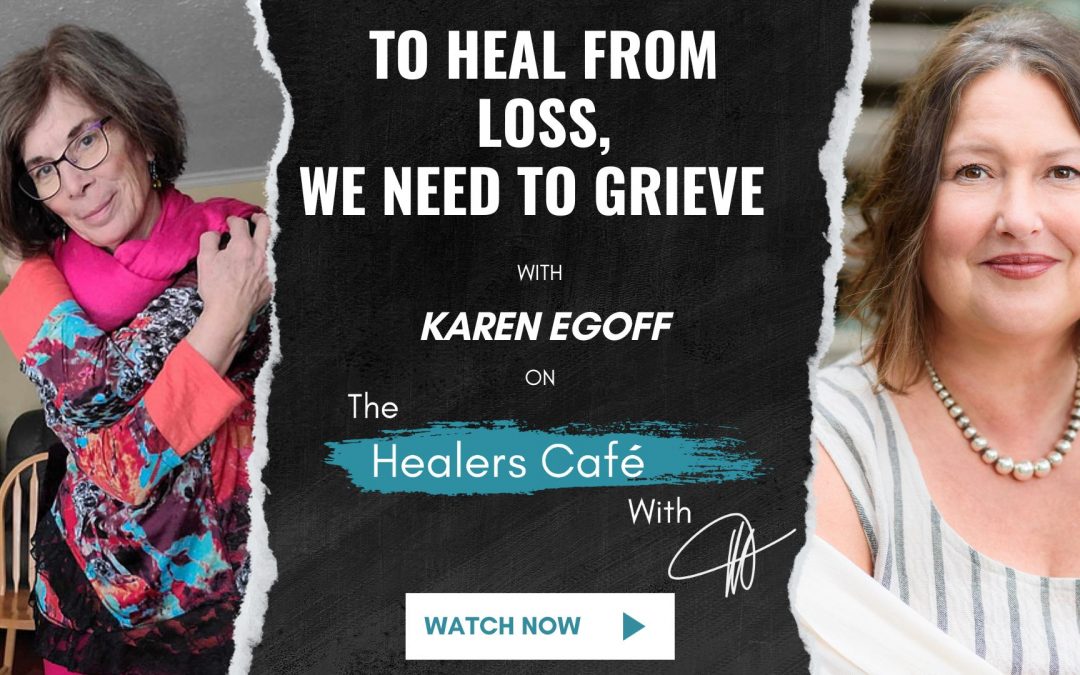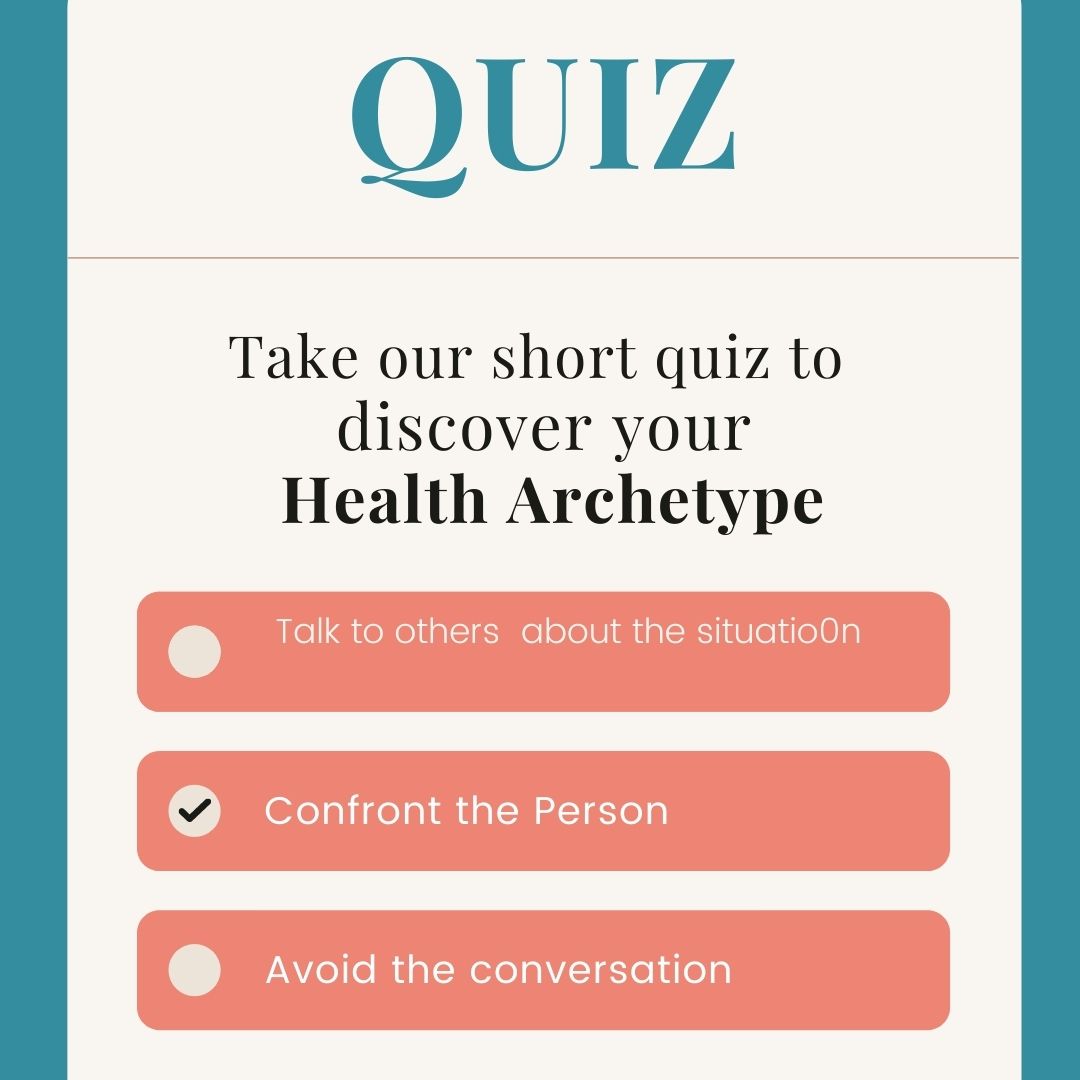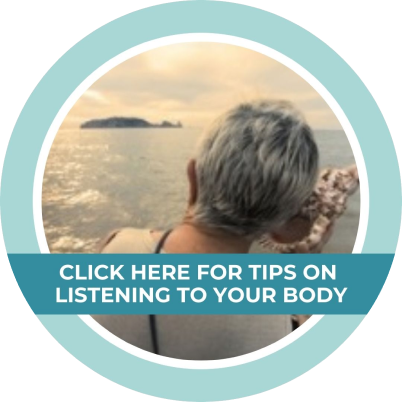
The #1 show for medical practitioners & holistic healers to have heart to heart conversations about their day to day lives.

Manon Bolliger (Deregistered with 30 years of experience in health)
iTunes | Google Play | Spotify | Libsyn | iHeartRadio | Gaana | The Healers Cafe | Radio.com | and many more

Russell Sturgess
How Does Bowen Therapy Illuminate the Connection Between Human & Soul with Russell Sturgess on The Healers Café with Manon
In this episode of The Healers Café, Manon Bolliger, FCAH, RBHT (facilitator and retired naturopath with 30+ years of practice) speaks to Russell Sturgess, about healing with Bowen through the soul.
Highlights from today’s episode include:
Russell Sturgess that’s where our suffering happens, we’re actually looking for in wealth and power, in love in success, we’re looking for our happiness outside of ourselves, which is bizarre, because our intrinsic self is happiness. Our sole being is that it’s in here, it’s not out there. And then, once you understand and have grasped the whole notion that our happiness is within
Russell Sturgess They’re having a painful experience. So, what happens is we turn up and we apply this technique, and we try to fix people, and this is going to be one of the hardest things for me to get across to anybody is that you’re not fixing anybody. All you’re doing is opening windows of opportunity. This is what a Bowen therapist does.
– – – – –
Manon Bolliger 19:30 when you’re in connection with another person on the table, we know mechanically some of the impacts that you know that Bowen triggers, like the piezoelectric effect or all of that we know that there’s you know, a frequency
ABOUT RUSSELL STURGESS:
From his teens, Russell demonstrated an understanding of agape (unconditional love) that defied his age. His upbringing saw him channel his passion into complementary health, as well as religion. Russell now serves as a spiritual director, using the path of the Beatitudes as a way to help people sustainably remember to be kind to themselves, to others and to the planet.
Healing is listening, which is being aware. Ignorance, avoidance and our attachments void our capacity to be aware, resulting in suffering.
Russell specializes in a combination of Bowen Therapy (his interpretation called Fascial Kinetics), Osteopathic Massage, and Reflexology. He brings almost 50 years of healing experience to what he offers.
ABOUT MANON BOLLIGER, FCAH, RBHT
As a recently De-Registered board-certified naturopathic physician & in practice since 1992, I’ve seen an average of 150 patients per week and have helped people ranging from rural farmers in Nova Scotia to stressed out CEOs in Toronto to tri-athletes here in Vancouver.
My resolve to educate, empower and engage people to take charge of their own health is evident in my best-selling books: ‘What Patients Don’t Say if Doctors Don’t Ask: The Mindful Patient-Doctor Relationship’ and ‘A Healer in Every Household: Simple Solutions for Stress’. I also teach BowenFirst™ Therapy through Bowen College and hold transformational workshops to achieve these goals.
So, when I share with you that LISTENING to Your body is a game changer in the healing process, I am speaking from expertise and direct experience”.
Mission: A Healer in Every Household!
For more great information to go to her weekly blog: http://bowencollege.com/blog.
For tips on health & healing go to: https://www.drmanonbolliger.com/tips
SOCIAL MEDIA:
– Linktr.ee | Rumble | Gettr | Facebook | Instagram | LinkedIn | YouTube | Twitter |
About The Healers Café:
Manon’s show is the #1 show for medical practitioners and holistic healers to have heart to heart conversations about their day to day lives.
Subscribe and review on your favourite platform:
iTunes | Google Play | Spotify | Libsyn | iHeartRadio | Gaana | The Healers Cafe | Radio.com | Medioq | Audacy |
Follow The Healers Café on FB: https://www.facebook.com/thehealerscafe
Remember to subscribe if you like our videos. Click the bell if you want to be one of the first people notified of a new release.
* De-Registered, revoked & retired naturopathic physician after 30 years of practice in healthcare. Now resourceful & resolved to share with you all the tools to take care of your health & vitality!
TRANSCRIPT
Introduction 00:00
Welcome to the Healers Café. The number one show for medical practitioners and holistic healers, to have heart to heart conversations about their day to day lives, while sharing their expertise for improving your health and wellness.
Manon Bolliger 00:20
So, welcome to the Healers Café. And today I have with me Russell Sturgess, and just a little bit about his background. So, he learned to osteopathic massage, way back, I think it was ’74. Studied remedial massage, osteopathy, at the South Pacific College in Sydney, and practice in rural Queensland until the year 2000. Then he learned Bowen therapy in 1987, and that became his primary modality he researched. He was doing a lot of research and was the first person to teach the fascial association of Bowen therapy. He also developed his own Bowen course called fascial kinetics. And he’s taught extensively in the in the US way back, also in Australia and New Zealand. And currently, he’s bringing in an angle, that is, from a life work that the importance of mindfulness and exploring the current level of awareness that a healer in their doing what they’re doing, has basically. So, I’m really thrilled to have this open discussion with you. So, thank you for, for participating.
Russell Sturgess 01:54
It’s a real delight, thank you for the invitation, pleased to be here with you.
Manon Bolliger 02:00
So, what, you know, I feel like jumping rather than going through a lot of history. I mean, obviously, Bowen was a big part of what you you’ve been doing and sharing and bringing your own sort of understanding and version to. But what is this about, you know, your soul journey, compared to your human being journey? This is found a juxtaposition, but how is it that you see what you’re doing now? As being, I don’t know, if it’s a, if it’s a, an evolution? Or if it’s a…what is going on for you at this point, because, you know, when I talked to you 15 years ago, we were a little bit still in the, in the hands…And, you know, we have evolved from that. So maybe you could share that journey? Because I find that fascinating.
Russell Sturgess 03:03
So, yeah, that’s a good question. And I think it’s probably the question, if you’re going to ask any questions today, it’s about that, you know. Ultimately, suffering and what most people experience is their pain and suffering is, is the direct experience of being a human. It’s a human experience that’s brought about by the two faculties, that is fundamentally definitive of the human experience. Which is…
Read more...
the mind thinking, and perception, which is the senses and the way in which we engage and interpret what the senses experience. And so, ultimately, what we have is a reality that where we experience and interpret what we’re experiencing, through those two elements. And as a result of that, how we think and perceive, of course, is highly influenced by how we’re programmed by our familial upbringing and by our cultural and social environments. And so, what we have is a whole lot of programs within our mind that establishes whether we like something or don’t like something, what we think about something. I mean, you can have two people having the same experience and one loves it and the other one hates it. You know, so it’s not the experience of life that’s the reality. The reality for us as a human being is the perception or the filter that we have about the experience. The other part of who we are is soul being and soul being you is our innate essence, you know. And I like to use the analogy of the blue sky, our blue sky is our soul. It’s blue. And it’s like that all the time, you know. But what we have is all of these clouds of human filters that come over. And sometimes those clouds are storm clouds with lightning and thunder, and it covers up the blue sky. But here’s the whole thing is that the blue sky is always there. It’s just been covered up for a moment. Or for as long as we’re alive, depending on what we do with human consciousness, which are these clouds that cover it up. Every once in a while, we have the cloud separate and we see a bit of blue, we think the blue is the cloud. Because it only appears every once in a while, because there’s so much gray cloud and the storm cloud around, which is the storm cloud, the gray cloud is our suffering and the things that we experience. So, the interesting thing is, is that all we’ve got to be able to do is step back and look behind the grand cloud. And soul being is there. And soul being only knows one state of being which is peace, joy and happiness. It’s current, constant state of being it never changes, it’s always because it’s part of source, whatever you want to call infinite awareness, it’s part of that. So, the journey, and in fact, the journey is a very simple one, all you got to do is step back and become the observer. And in fact, this is one of the primary skills that anyone in healing absolutely must possess is the ability to step back and be the observer of themselves, and of other people. And what that means is to be able to be become aware of the facts of what’s presented, without giving any of it a meaning. Okay, now, whether it’s a healer, or whether it’s in life, it’s having the ability to step back and just observe the facts. I have a cheeky business card that says I’m a punctuation expert. And, down the bottom, I have a line that says, full stops, invites God in commas, push God out. A full stop is when we observe a fact. And then put a full stop in what we do as a human being, is we see a fact, but we don’t use a full stop, we then put a comma, and then we use our mind and our perception to mold it into our…who we perceive the reality to be. And so, in fact, when manifesting our reality constantly, because we use commas.
Manon Bolliger 08:24
Right.
Russell Sturgess 08:25
The minute that you use a full stop, then you invite God in, or source, whatever you want to call infinite awareness. But you invite that because that’s who you are, in that place. The point at which you become the observer, that soul essence, that’s the observer. And here’s something interesting. You instantly experience peace, the moment you step back and become the observer. You might be in a really painful situation, in terms of something that’s going on an argument, for example, the minute you step back and become the observer of the facts, then all of a sudden, you’re…because the observer doesn’t feel anything. It is peace, joy, and love. It actually doesn’t feel anything because that’s all it is. And so, in that moment, that’s all you experience.
Manon Bolliger 09:19
Right. I mean, like, from what I’m understanding, it’s the place of experience without judgment. It’s the…it’s the seeing, right. But I was curious because it came to me as a question. And, you know, we talk about our vital force. Right, which some people say is also source is also an end. It seems to have our best interest. You know, if we don’t muck around with it too much. Where…how do you see our soul being our observer, interplay, whether vital force or do you think it’s one in the same?
Russell Sturgess 10:09
It is the same.
Manon Bolliger 10:12
Okay.
Russell Sturgess 10:13
And so, and here’s the interesting thing is that when you begin to realize that every single person is sole source is divine source, you only have one way of turning up in the world. And that’s with love. Literally. In fact, there’s only two core elements to our experience. The first one is that where we’re looking for happiness, external. And that’s where our suffering happens, we’re actually looking for in wealth and power, in love in success, we’re looking for our happiness outside of ourselves, which is bizarre, because our intrinsic self is happiness. Our sole being is that it’s in here, it’s not out there. And then, once you understand and have grasped the whole notion that our happiness is within, you realize that everybody else is that as well in their core being. And so, then you start to turn up in the world, where you actually hold the awareness that every person you encounter is soul being. And now, that doesn’t mean to say that you have to like, what they do, but you will still love them. Because you know, their true essence. So, you don’t have to like what they do in their human beingness. But you still hold the awareness of their divine essence in that place.
Manon Bolliger 11:54
So, when you are in like a therapeutic, you know, position, how do you see that playing? Like, as in do you feel that the impact of understanding that reality as the reality that you’re perceiving to be the operating one, that’s therefore, you connect to your patient, you love your patient. And let’s say that their worldview has themselves in a suffering victim mode. And from your perspective, it doesn’t, you know, that doesn’t gel quite right, because you don’t see the world that way. How do you see the interchange? Like how do you see the dynamics of that play out?
Russell Sturgess 12:59
So, you’ve got two elements here, you’ve got you as, as the healer, the therapist, and then you’ve got fight. And so, you’ve got your stuff. And your filters, as you relate in your agendas, and they’ve got their stuff that’s going on. So, what you have when a client comes in, and they’re on the table on your treatment table, and you’re about to give them a treatment, you don’t just have a human being there, you have a soul being there. Now this is the interesting thing about fascia is that fascia is the veil between who somebody is as a human being, and who they are as a soul being. And what I can tell you is that the more glued the fascia, the more suffering the person is experiencing, and the more they’re immersed in their human being.
Manon Bolliger 13:56
Yeah, because they’re not free, basically.
Russell Sturgess 13:58
Absolutely, you know, so there’s, there’s no connection to their soul essence, which means that they’re in a place of suffering, because all of their energy is being directed about trying to find happiness outside of themselves. So, they have painful…they’re having painful experiences in their relationships, and they’re feeling victimized and they’re feeling that they are failing all the time. And you know that poverty and scarcity is something that they’re having to deal with all the time. And their in…they’re in pain. They’re having a painful experience. So, what happens is we turn up and we apply this technique, and we try to fix people, and this is going to be one of the hardest things for me to get across to anybody is that you’re not fixing anybody. All you’re doing is opening windows of opportunity. This is what a Bowen therapist does. And we do it so differently just about to any other modality when we’re doing Bowen, because when we’re touching fascia, we’re touching the skin of the spirit, I call it. When we touch the fascia, what we’re doing is we’re opening the veil, with the curtain between who somebody is as a human being, and we’re allowing them to touch their soul being. All the more reason why if you haven’t done that, work yourself, you will be limited in your ability to truly serve the person you’re working with. You, as a healer, have an obligation to understand your soul essence. Now, one of the things that you’ll begin to realize is that when you move into functioning in the world from soul essence, in that place, you’re inviting God, universe, whatever you want to call that, to manifest as doing what it does best, which is to love and to heal. You know, in the Christian tradition, and I hope I don’t offend anybody, but in the Christian tradition. I think the most important scripture was in Matthew 13, when Jesus said, If you can see with your eyes and hear with your ears, that’s being the observer. If you can see eyes and hear with your ears, and understand with your heart, in other words, having an intention to love, I will heal you.
Commercial Break 16:38
What would your life be like if you were pain free? If you were one of the millions who suffer from chronic pain, the thought of just one day without it may seem impossible. This is often because conventional medicine tends to fall short in the treatment of pay, opting to prescribe pills or recommend surgery rather than getting to the root cause of the problem. But if you are suffering with emotional or physical pain, there is hope. Join the founder and CEO of Bowen college Manon Bolliger, live online for your body mind reboot, learn how to listen to your symptoms and get to the root cause of your pain. Plus be trained in basic Bowen Therapy moves so that you can reboot your body for optimal health. You don’t have to live in pain, you can heal, stop the pain pill cycle by visiting www.yourbodymindreboot.com To learn more, and to register.
Russell Sturgess 17:40
He just gave the healing formula right there. If you can see with your eyes, hear with your ears and understand with your heart. And so, what happens is the priority of the treatment or the agenda for treatment shifts from having to fix somebody to being truly present or being truly the observer. And in that place, you invite sourcing and source becomes good source and he knows one thing which is to heal. And so, what happens is in that place I live in a rainforest by the way, I’m sitting here and I’m looking 15 foot from my house I’m off grid I’m in the mountains, I have Australian rains, I’ve dingoes walk past literally. Yes, I had dingoes walking past my room here and wallabies come hopping past and what have you that the rain forest, if you imagine it the rain forest is divine source as everything is and it grows at such a phenomenal rate. I can go in and chop it back and cut it back that it only knows one thing. Abundance, right and it replenishes and regrows. Well, we’re chopping it back by our stories, by our narratives, by our fears, our expectations, our hopes, and all of those things. We’re cutting it back all the time because of our childhood narrative. Given the opportunity, it just wants to be abundant.
Manon Bolliger 19:30
Now, I agree with you. And I’m wondering, you know, when you’re in connection with another person on the table, we know mechanically some of the impacts that you know that Bowen triggers, like the piezoelectric effect or all of that we know that there’s you know, a frequency or some…to me, it’s like a vibration. That Okay, let me give you a little caveat before so you can see where I’ve come from. So, I did not know that it wasn’t normal or natural not to hear the body. So, when I put my hands on somebody’s body, I can actually hear where it’s out of tune. So it was, but I, you know, maybe that’s my life as a dolphin. I don’t know. I have a sense that I thought everyone could hear this. So, when I was teaching it, I would say to people, oh, it just sounds like, you know, I make these strange noises, because that’s what I can hear. Now, do you think it is in your experience, is it…if it is frequency, that we’re exchanging on some level, does that make sense that there is a continuum in frequency as well, does any of that makes sense? I’ve been trying to come to terms with what is this thing that because I know it’s a pain, I just, I’m not sure. It’s not like, you know, you…when you’re working with somebody, it’s not like you can tell what’s wrong. So, your hands are drawn to knowing what to do to allow the order to take back. It’s almost like, the body knows so much what to do, if you listen, you just follow the instructions, basically, right? Because the force of healing is so strong, that if you’re attuned and listening and seeing it, you can’t go wrong. I mean, you’re part of this circuit. And so, I’m looking at, you know, what, so much of the New Age stuff, and they’re all talking about, you know, scalar energy and this and that I’m thinking like, do we have something here very much similar? That we just don’t have the vocabulary, or I don’t have the vocabulary to explain it in those terms. Does that relate to your experience at all with this?
Russell Sturgess 22:31
My experience in it is…is knowing is an inner knowing it’s…so it’s not vibrational for me, or it’s not sound. It’s its inner knowing. So, when I touch a body, it’s just, it’s like guidance. And that was there from a very young age.
Manon Bolliger 23:04
Okay.
Russell Sturgess 23:05
In terms of just knowing where to go and what to do it as I said, it was an inner knowing for me, so I never felt that vibrationally.
Manon Bolliger 23:19
Right. Fair enough.
Russell Sturgess 23:20
Yeah, so I’m sort of trying to relate to that. And that wouldn’t be a language around my experience, in that. And even for me, it was even more than just an inner knowing about the body, I would actually be given words, while I’d be treating somebody about what they were dealing with, at this particular time, in terms of relationship experience, or something that they were dealing with. I would actually be given a word, and I would use that word in the process of working with somebody and it would unlock the most amazing responses in people in terms of tears and fear and all sorts of things just by using these single words that I’ve been given while I’d be working with people, you know, so it was a very intuitive process for me.
Manon Bolliger 24:14
But it’s, so that’s not auditory in that sense, but it’s like, it’s the use of the word is symbolic, on some extent, obviously. But it’s another way of relating in being completely present with what you’re experiencing as a practitioner.
Russell Sturgess 24:38
Absolutely. And one of the problems and this is one of the things that we do in I’m going to be a little bit I have a process a program called the healer, pathway. And one of the things that we is…are you familiar with the Enneagram?
Manon Bolliger 25:02
Yes, yeah.
Russell Sturgess 25:03
Yeah. So, we have a slightly different way of helping people identify their story. But because we do this in a group thing, I use the Enneagram to help people identify their narrative. And if you start to look at, you know, if, you know, if you’re one, which is the protectionist on the Enneagram, for example, you’re going to be totally organized, total ethical compliance. You gotta be a stickler for doing the technique, it’s got to be done this way. And practice protocols all have to be done the right way, you know, it’s the perfectionist. You might be the four, which is the individualist, and you take a really liberal approach, and you just follow your gut feel, and the energy in your room is more important, you know, in terms of, you know, and creative and how you use other techniques. And so what we have are these, on the Enneagram, these nine different ways of approaching, which is all parts of our narrative. And of course, what happens is these things, if they’re done with awareness, don’t get in the way, but if they’re done out of awareness, then they get in the way of what we’re able to do, and, in fact, the destroy our capacity to really, truly be present. Because we’re using our mind and perception based on Enneagram to relate to what’s going on.
Manon Bolliger 26:37
Yeah, yeah. Yeah, no, I agree. Because it’s, it’s not like a thought gets involved if you’re totally present. But the moment you explain it, like, you know, people say, well, can you give us a protocol for this or that? No. It will depend, you know, on what’s happening in the moment, you know, and even your connection to what’s happening is going to be different, right? Like you said, you have nine ways of being minimally or naturopathy finds 500 states. Plus, I mean, we all come to it very differently.
Russell Sturgess 27:26
But the protocol is, though, is there’s only one protocol, and that is to become the observer.
Manon Bolliger 27:35
Right.
Russell Sturgess 27:36
That is the protocol. Yeah. Because in place of becoming the observer, you’re observing you. And the other. And that place there, you open yourself up to source. As the observer, that’s how we connect with observer is through being how we connect with source is through being the observer using full stops instead of commerce.
Manon Bolliger 28:08
And why is it in your mind that Bowen lends itself so well, to this understanding of, as compared to, let’s say, chiropractor. I mean, osteopathy. There’s so many different brands of it. It’s hard to generalize there. But, you know, chiropractor he has a different way of, or deep tissue work has a different understanding of all of this was, well, why Bowen is so…
Russell Sturgess 28:43
Because they have an agenda. They have an agenda to fix. Whereas we have an agenda to release glute fascia. Yeah, we’re not adjusting anything. We’re not manipulating as you know, we’re not doing deep work to get in and release things. We’re using this really noninvasive system of releasing fascia. And it’s allowing the body and the soul and that’s the difference. You see, one of the things that I began to realize is that why massage doesn’t do what Bowen therapy does, is that it washes out the piezo electric effect. And so, it basically takes away that ongoing impact of the fascia responding to piezo electric change. And so, any deep work is going to do that. Chiropractic doesn’t even address it. It just is relating and adjusting. So, it’s not even working it. Particularly if what I’m saying, and others are beginning to say is that fascia is the veil between our soul being in humans It’s the skin of the Spirit. That’s what makes what we do so different. Is that where we’re softening this veil where we’re making the connection. And so, in practical terms, what does that look like? That’s the client coming back after the second treatment, saying, Well, I’ve done it, and you go, what are you done, I’ve left my partner, I’ve quit the job, I’m gonna move house. And it is sort of like, you know, and that happens so often, when I was in practice, that people would make these big life changes. Why? Because now they were listening to their soul, not the human being, they had put up with being in an abusive relationship all these years, and they’ve said, I’m not going to take it because their soul says, this doesn’t serve you to be here. The human being says, um, you’re not going to be secure if you leave this relationship, even though you’re going to be continually abused, at least you know, you have food on the table and a bed to sleep in. You know, and people will keep on doing it. You do Bowen on people, and all of a sudden, you wake them up to the possibility of a more soul filled life, which is why as a health professional, you’ve got to understand what it is that you’re doing when you’re applying this technique. And I think that that’s what is missing in the Bowen community is people don’t understand how powerful this really is. at a soul level.
Manon Bolliger 31:37
Yeah. Well, I certainly do.
Russell Sturgess 31:42
I know you do.
Manon Bolliger 31:44
And I’m so thrilled that that, that you’re making this your you know, what you’re doing now is to get that point across, because yeah, it’s just it has to go this way. Because I don’t know of any other therapy that is as easy and comprehensive. That can change so profoundly. So, I yeah, I’m very happy to have a brother somewhere. Wherever you are now.
Russell Sturgess 32:17
I’m in Queensland, but I’m…
Manon Bolliger 32:18
In Queensland at this moment. Okay, yeah, I’m sort of traveling at this moment. But anyway. So where can people find out more about you like your, your website or your books? And then our time is up.
Russell Sturgess 32:36
Yeah, well, probably the best thing to do is to go to my website, which is just Russell Sturgess. russellsturgesscom.au. And you can see the whole plethora of things that I’m doing there. The other I have another sort of my core businesses, the Center for Western Mindfulness. And if people go to that website, it’s westernmindfulness.com.au. And you’ll get to see everything that I’m about and the things that I’m doing. And as you said, I’ve published three books. The third one was published by inner traditions, and Simon and Schuster’s the distributor for and it’s called The Spiritual Roots of the Tarot. The Katha…
Manon Bolliger 33:28
Oh, I would love to know more about this. Ron Allen was talking a little bit about this when he was over in Canada and I’m like, Ah, this I can oh, we should do a whole interview on this.
Russell Sturgess 33:40
Happy to do.
Manon Bolliger 33:41
Interview number two.
Russell Sturgess 33:43
Because that’s that once again, you know, I get to see things differently. That’s what I do in life is to see the world differently and gave the Tarot a whole new meaning. I don’t do Tarot reading. In fact, it’s a deep spiritual message of transformation. In fact, it reveals how to live from soul being that’s what that was all about. And that’s, yeah.
Manon Bolliger 34:07
I’d love to have that story firsthand. But anyway, I’m going to leave it at this point, because our time is up and I try and keep them you know, so that people don’t have many long surprises. But anyways, absolute pleasure speaking with you. And thank you.
Russell Sturgess 34:25
And thank you I love telling people about what I do.
ENDING: 41:33
Thank you for joining us at the Healers Café. If you haven’t already done so, please like, comment and subscribe with notifications on as I post a new podcast every Wednesday with tons of useful information and tips for natural healing that you won’t want to miss.
Continue your healing journey by visiting TheHealersCafe.com and her website and discover how to listen to your body and reboot optimal health or DrManonBolliger.com/tips.

Dr Jannie Krause ND
How to Feel Great Into Your 40’s and Beyond with Dr. Jannine Krause, ND on The Healers Café with Manon Bolliger

Dr Carli Axford
Release Stored Stressors to Help Heal Health Issues with Dr. Carli Axford on The Healers Café with Manon Bolliger

Russell Sturgess
Bowen Therapy Opens The Veil Between Human and Soul with Russell Sturgess on The Healers Café with Manon Bolliger

Karen Egoff
To Heal from Loss, We Need to Grieve with Karen Egoff on The Healers Café with Manon Bolliger

A Better Way To Connect With People
Manon is a newly retired Naturopathic Doctor, the Founder of Bowen College, an International Speaker, she did a TEDxTenayaPaseo (2021) talk “Your Body is Smarter Than You Think. Why Aren’t You Listening?” in Jan 2021, and is the author of 2 Amazon best-selling books “What Patient’s Don’t Say if Doctors Don’t Ask” & “A Healer in Every Household”.
FollOW MANON ON SOCIAL MEDIA
Manon Bolliger, FCAH, RBHT
Facilitator, Retired naturopath with 30+ years of practice, Business & Life Coach, International & TEDxTenayaPaseo (2021) Speaker, Educator, 2x Best Selling Author, Podcaster, Law Graduate and the CEO & Founder of The Bowen College Inc.
* Deregistered, revoked & retired naturopathic physician after 30 years of practice. Now resourceful & resolved to share with you all the tools to take care of your health & vitality!
![]()








